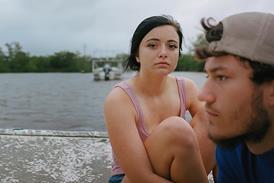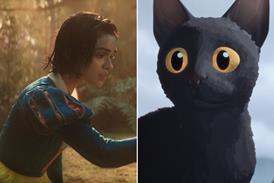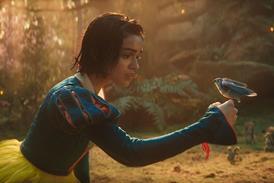Norway’s submission to the Oscars to open 56th edition; Jihlava docfest winners revealed.
Bent Hamer’s latest feature film 1001 Grams will be the opening film tonight for Lübeck’s Nordic Film Days (Oct 29 – Nov 2), which has a programme of 172 films screening from the North and North-East of Europe.
Norway’s submission for the Best Foreign Language Film Oscar was co-produced by Cologne-based Pandora Film Produktion and will be released theatrically in Germany by Pandora’s distribution arm, Pandora Film Verleih, on December 18.
Ahead of 1001 Grams’ German premiere in Lübeck, co-producer Claudia Steffen and her partners at Pandora issued a statement expressing their concern „that one of our most important allies, the Film- und Medienstiftung NRW, has faced significant cut-backs from its two main shareholders.“
Earlier this month, public broadcaster WDR had revealed its intention to reduce its voluntary annual contribution to Germany’s leading regional film fund by $ 3.82m (€ 3m), and the Land of North Rhine-Westphalia subsequently reported that it was proposing to cut its support by $ 1.27m (€ 1m) per year.
„We ask you to reconsider this and continue to support cinema - particularly at this point in time - for its cultural and economic importance in NRW,“ they said.
Pandora had received $ 471,500 (€ 370,000) from the Film- und Medienstiftung NRW for 1001 Grams and $ 1.01m (€ 800,000) for its Venice competition film, Fatih Akin’s The Cut.
The Film- und Medienstiftung NRW currently has an annual budget of $ 44.6m (€ 35m) at its disposal.
Festival competition and programme
Films selected for the 56th edition’s main competition include the Golden Lion winner A Pigeon Sat on A Branch Reflecting On Existence by Roy Andersson, Ruben Östlund’s Cannes title Force Majeure, Peter Flinth’s Beatles, Ole Christian Madsen’s Itsi Bitsi and Juha Lehtola’s Boy Upside Down, while 2014’s Retrospective will be dedicated to Scandinavian comedies by directors as diverse as Ingmar Bergman, Carl Theodor Dreyer and Lars von Trier.
Other sidebars include a line-up of recent documentaries – from Ballet Boys through PMR In The State Of Limbo to The Optimists -, Specials with screenings of Liv Ullmann’s Miss Julie, Mikko Niskanen’s 313-minute rural epic Eight Deadly Shots from 1972, and Hans Petter Moland’s In Order Of Disappearance, among others, and the annual Filmforum showcase of North German productions such as Monika Treut’s Of Girls And Horses and Christian Theede’s Till Eulenspiegel.
Lübeck Meetings
Apart from the Nordic Film Days’ public screenings, the festival will also stage its parallel industry programme, the Lübeck Meetings, organising closed screenings for German distributors, TV buyers and exhibitors of eight selected films from the festival programme, which have not yet found distribution in Germany.
In addition, a Nordic-German co-production and distribution gathering will be held again this year to present cases studies and strategies for the production and distribution of films for children and young people in German and the Nordic countries.
There will also be a spotlight on Baltic cinema with a discussion on developments in the region and the role played by the Lübeck festival over the past 25 years with contributions by film-makers Ilmar Raag and Talivaldis Margevics, Vilnius International Film Festival programmer Edvinas Puksta, Nordic Film & TV Fund CEO Petri Kemppinen, and the Nordic Film Days artistic director Linde Fröhlich.
Jihlava docfest winners
Anna Roussilon’s debut feature-length documentary I Am The People was chosen by the sole jury member, veteran Serbian film-maker Želimir Žilnik, for the Opus Bonum – Best World Documentary Film Award at this year’s Jihlava International Documentary Film Festival (Oct 23-28).
Roussillon’s film about the political changes in Egypt in 2011, as seen from the perspective of poor villagers in the south of the country, was described by Žilnik as offering „an innovative introduction to turbulent times of Arab Spring“.
The film also received the newly created First Lights Prize for best debut or second film.
Žilnik also made special mentions of Brazilian Tiago Tambelli’s observational documentary 20 Cents and Colombian Juan Camilo Olmos Feris’ Chasing After The Wind.
Other awards presented in the closing ceremony at the Czech town included the prize for the best Central and Eastern European documentary to Hubert Sauper’s We Come As Friends, the Audience Award to Veronika Lišková’s Daniel’s World portraying a 25-year-old homosexual paedophile, and the best Czech documentary film award to Martin Dušek’s Into The Clouds We Gaze about a fan of auto-tuning.
An international jury including UK-based sales agent Xavier Henry-Rashid of Film Republic and Emilie Bujes of Switzerland’s Visions du Réel festival presented this year’s Silver Eye Awards to Matej Bobrik’s The Visit (short-length documentary), Alina Rudnitskaya’s Blood (medium-length documentary), and Alexander Nanau’s Toto And His Sisters, with a special mention for the collective project Gottland.
Films made for free via Doc Alliance platform in Jihlava and Leipzig
Five films – including Lee Anne Schmitt’s California Company Town and Daria Khlestkina’s The Last Limousine – were selected from Jihlava’s „The Factory in Contemporary Documentary“ sidebar and made available for free via DOC Alliance’s online platform DAFilms.com for more than a week until October 28.
This has now been followed by the presentation of six films shown at DOK Leipzig in 2013, which are accessible via the platform at no charge from October 27 to November 2.
The Leipzig line-up includes Slovak director Robert Kirchhoff’s Normalisation: Kauza Cernanová, Daniela de Felice’s animated film Casa, the German documentary Art War and Yael Kipper and Ronen Zaretzky’s Super Women.
Innovation for Moscow screening of LGBT documentary
Further East in Moscow, the organisers of the „Delai Film“ International Documentary DIY Film Festival (Oct 24-26) circumvented Russia’s new anti-obscenity laws for its screening of co-directors Pavel Loparev and Askold Kurov’s Children 404 about the position of LGBT teens in present day Russia.
Since the film doesn’t have a distribution permit for public viewings, the festival opted for a new presentation format for this particular film: personal viewing on 30 rented notebooks with headphones. Alternately, festival guests – who were required register attendance online before all of the festival’s screenings - could bring their own notebook and access the film via a USB stick.
Other films showing at the festival whose aim is „to encourage the creation of new activist documentaries and promote successful cases of self-organization in the solution of urban and social issues“, included the Russian premieres of Simon Klose’s The Pirate Bay, Isa Willinger’s Away From All Suns, Wonder Women! The Untold Story Of American Super Heroines and Bill daaniel’s Just Who is Bozo Texino?
The programme of the festival, which was supported by the Moscow Cultural Development Agency (part of Moscow’s Department of Culture) and the Russian Documentary Guild, among others, covered documentaries on socially engaged art and activism, as well as films about public control, ecological activism, fighting with corruption, and protection of civil rights.
In addition, the festival organisers had selected films on the themes of gender, excluded and invisible people and communities for a section called „Others“.

























No comments yet